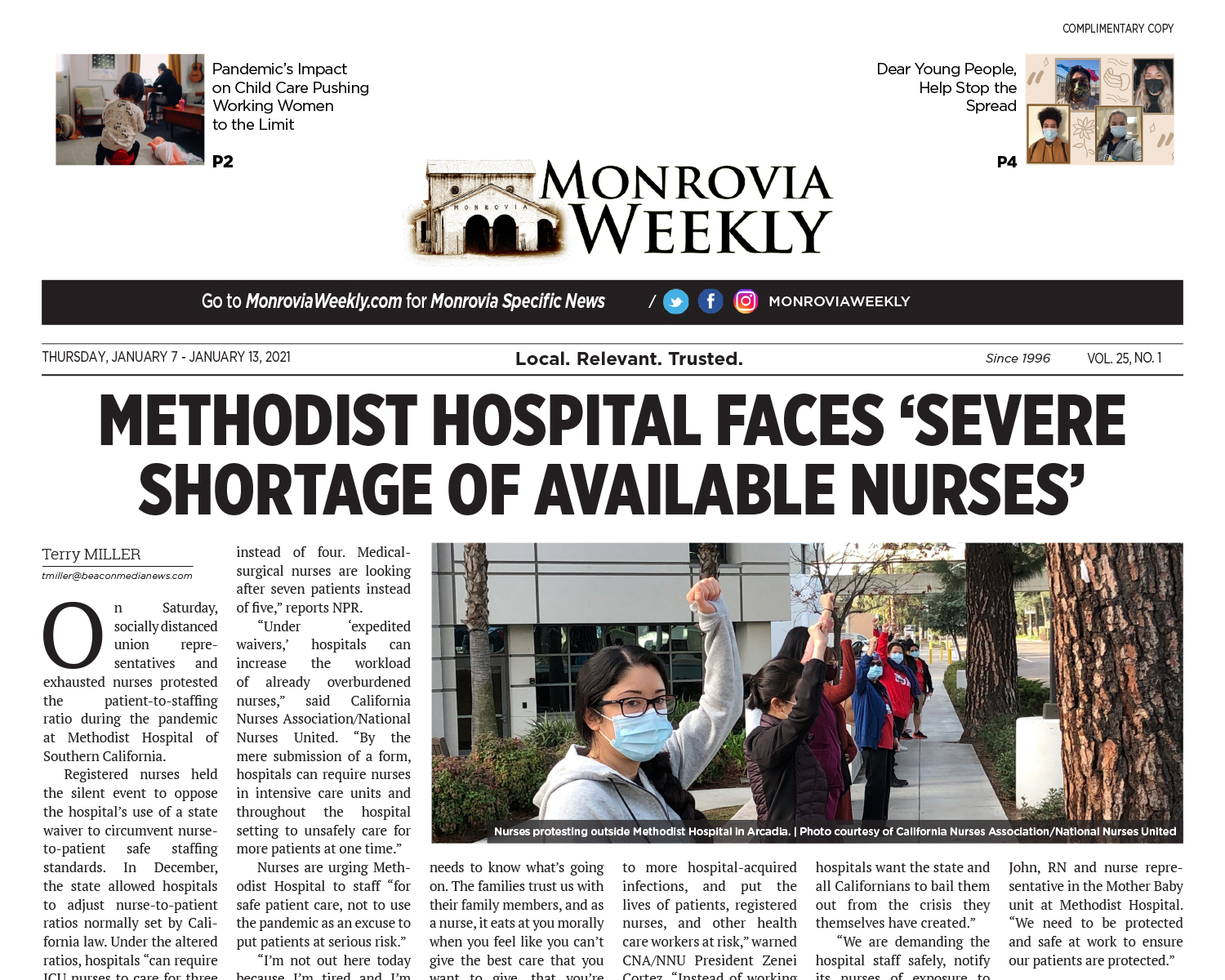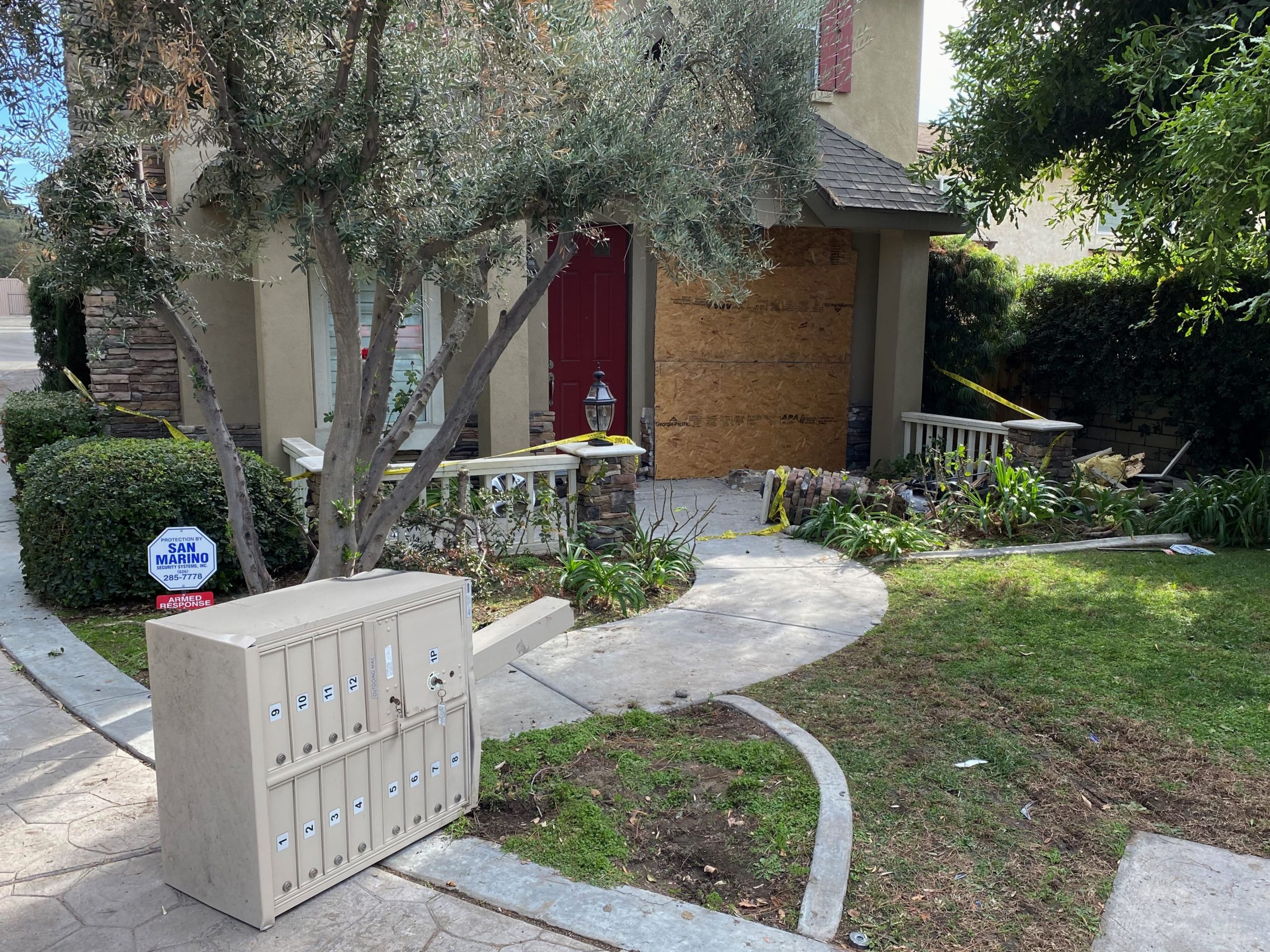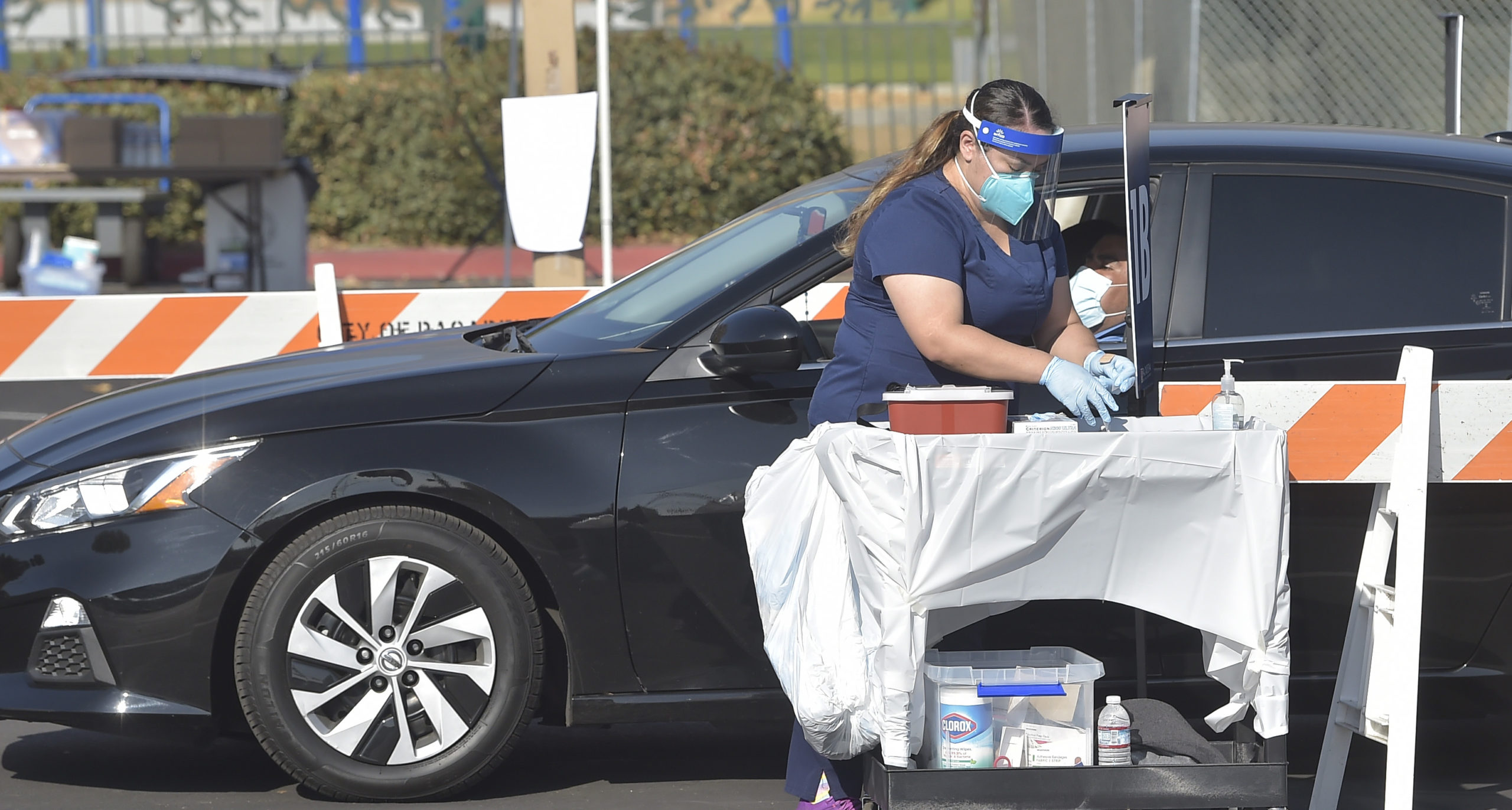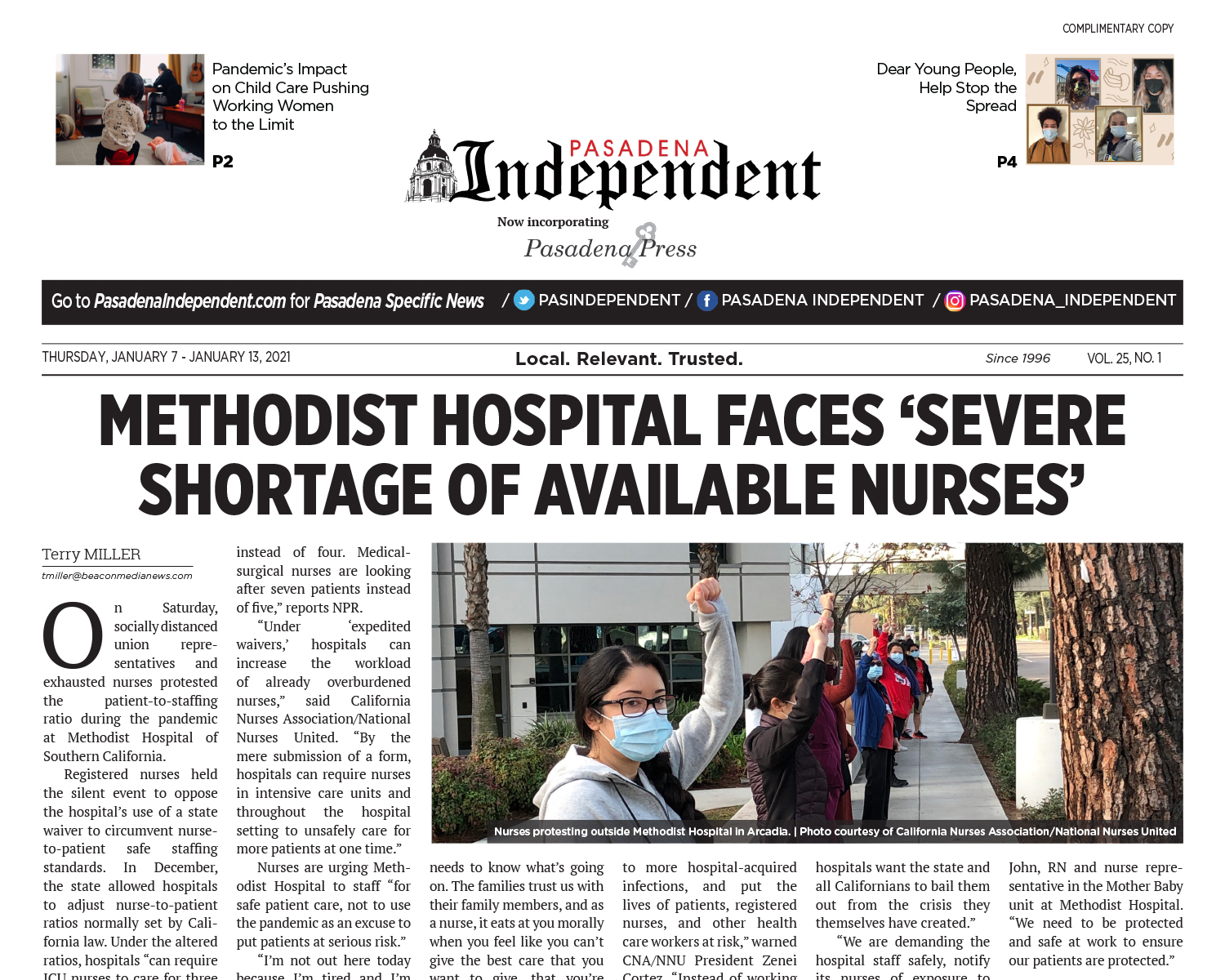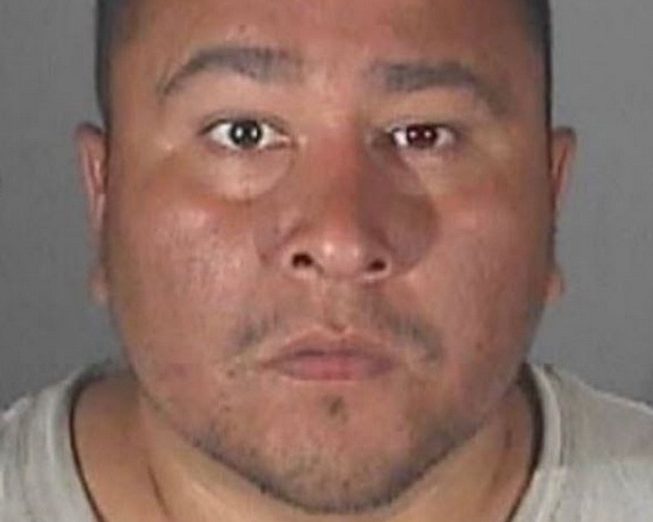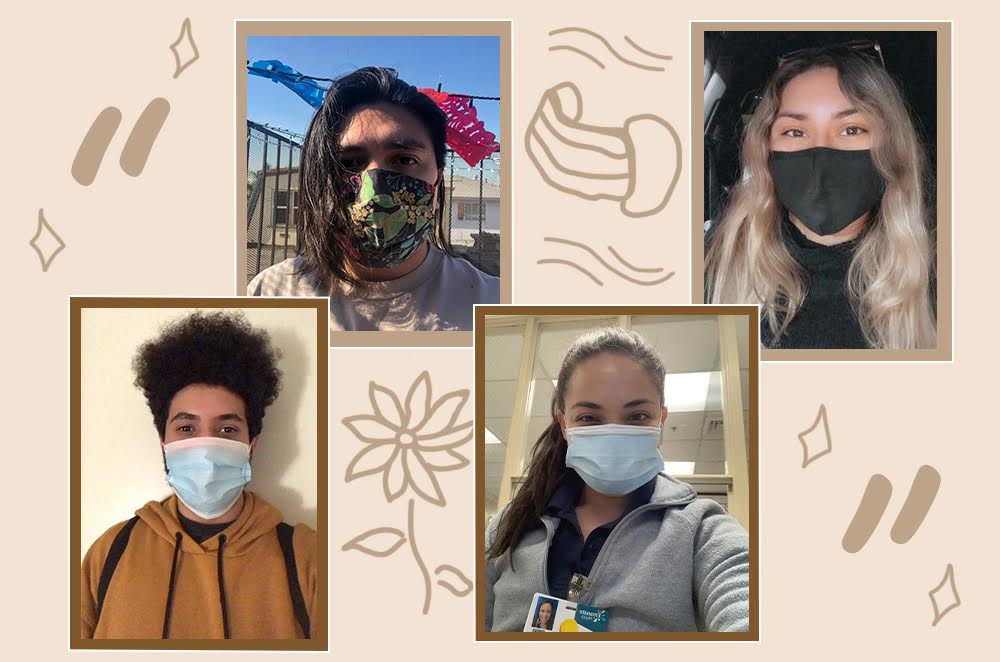
By Destiny Torres
Scrolling through social media terrifies me. I see that the same people posting about the importance of wearing masks are also posting videos of themselves at parties on their private stories.
Though in California over 1 million more people became infected with COVID-19 in the month of December, a lot of people want to live life while ignoring the virus and the escalating number of deaths.
“I’ve had it once and got over it easily, so I don’t see the big deal.”
“It’s just a cold.”
“Young people aren’t that affected by it, so I’m safe.”
“What am I supposed to do, put my life on hold?”
These are just some of the popular things people say when they’re called out for not taking the pandemic seriously.
The fact of the matter is that young people can be just as affected as older ones, and I spoke to a few who know that first-hand.
Juan Venegas is a 20-year-old from San Jose, Calif. who has seen people of all ages suffer at the hands of COVID-19, including himself.
Since the beginning of the pandemic, Venegas has isolated himself from friends and family outside of his household for their sake and his own but, like many, he cannot afford to stop working. This is the reason he continued to work at his retail job despite the risk of contagion.
It was at this job where he encountered customers who refused to wear masks, people who claimed the virus was a hoax, and management that failed to protect him and his coworkers.
In mid-November, Venegas started feeling sick and chose to get tested when he began experiencing excruciating headaches that would keep him up at night. On Nov. 15, Venegas tested positive for coronavirus which forced him to stop working for two weeks with no pay.
Venegas said seeing young people out and about at parties, restaurants and other get-togethers made him really angry. “At this point, it’s not ignorance anymore, it’s stupidity,” he said. “A majority of young people still live with parents or grandparents, and they can get it and pass it on to them.”
Adan Ibarra, who is 26 years old, contracted the virus from his aunt who lives in the same household as him and four other family members.
Before the virus took hold of his health and home, Ibarra worked at a hospital as part of the environmental services (EVS) team that disinfected patient rooms while also studying music at California State University, Los Angeles.
“It wasn’t so scary at first just because we were used to working with all these different diseases, but once we started running out of PPE [personal protective equipment] gear, that’s when it got more scary,” Ibarra said. “I remember people started getting anxious and fighting over the supplies we had.”
Around November, his aunt tested positive after having a procedure; so, Ibarra disinfected every corner of the house and tried coming up with a plan to keep the children in the house safe.
Ibarra tested negative the first time, but approximately two weeks later, he started feeling sick with a sore throat and fever that escalated to trouble breathing. He got tested again and it came back positive.
“I would run out to the backyard to cough because I didn’t want to deal with making my other cousin sick,” Ibarra explained.
He did improve after a couple of weeks but noticed that his coughing and wheezing wasn’t getting any better.
“I can’t walk up and down the stairs without losing my breath, and I can’t do anything without getting winded,” Ibarra went on. “I thought, ‘okay, I need to see a doctor.’”
The doctor explained that he suffered permanent lung damage and recommended that he not participate in anything that required a lot of activity or heavy lifting. The diagnosis led Ibarra to leave his job.
“It isn’t until people see how this can devastate someone financially and physically that it really hits them,” Ibarra said. “It’s one thing to see things on the news and another to see COVID patients in beds freaking out.”
Anabel Aguilar, 22, lives with 10 family members. She tested positive back in August after her uncle was exposed at work.
“Most of us had always been under strict quarantine except of course for those who worked — which in this case was my two aunts, uncle, mother and myself,” Aguilar explained.
Aguilar’s uncle works on a large construction site with about 80 other people. Three of his coworkers were moved to a different site and then returned a few days later. When they stopped coming to work, her uncle discovered they had tested positive for COVID-19 and had everyone in the house get tested.
“Sure enough, although we weren’t having any symptoms, we all tested positive,” Aguilar said. “We immediately went into complete lockdown.”
Aguilar began to feel body aches and congestion like with any cold she has had. Her symptoms during the day weren’t very bothersome. But at night, Aguilar would stay up with trouble breathing.
“My chest felt like a ton of bricks were on top of it, making it really difficult to breathe,” Aguilar described. “The loss of taste and smell came after; I remember shoving cotton balls of alcohol and Vapor Rub up my nose to try and smell or feel anything and I couldn’t.”
Luckily for her, the symptoms only lasted a few days but the virus left an impact on her body.
“I still get little moments where I get shortness of breath and have to pause and take deep breaths,” she said. “Headaches are worse; when I had COVID my ears got ‘clogged’ like when you get on a plane and to this day I feel like I can’t pop them.”
Aguilar was supposed to complete school and receive her Certified Nursing Assistant (CNA) certificate in May but it was postponed because of the pandemic. She will receive the certificate this month and it will allow her and her classmates to lend a hand in hospitals fighting the virus.
“Just because I got [coronavirus] with light symptoms does not mean you will have it the same,” Aguilar warns. “Avoid having it at all by not partying and going out when it’s not necessary. Wear a mask! Stay at home!”
Marley Elise, 23, worked in the pediatrics unit of Queen of the Valley Hospital when she was exposed in August.
Like during any typical shift, Elise was checking a patient’s vitals and noticed that he had a high fever of 103 degrees. COVID patients were not supposed to be on that floor, so the child became a Person Under Investigation (PUI).
A few days later, Elise started feeling unwell but didn’t think the worst until she received a message from another nurse letting her know that the patient she had worked with tested positive.
Her symptoms were not severe but today, over four months after being infected, she still feels very fatigued at work and her sense of smell is not back completely.
Elise said she wishes young people would stop putting themselves at risk because of a 90% survival rate.
“I find that a lot of young people think about themselves,” Elise said. “Ask yourself: would I feel guilty if I gave this to someone else? Because most likely you will survive, but maybe they won’t.”
Elise added that she sees people divided into two sides. On one side, there are the people who are taking things seriously by being safe and following safety protocols. On the other side, there are the people who don’t or refuse to.
“It’s like a belief,” Elise said. “It’s become like a religion, either you believe in COVID or you don’t.”
As the numbers of cases and deaths continue to skyrocket across the United States, it’s hard for me to have any hope if we continue the behaviors that have put us in this position in the first place.
I ask people, of all ages, to think about others before you put yourself or anyone else at risk. I ask that we all continue to wear masks, social distance and help stop the spread of COVID-19.

